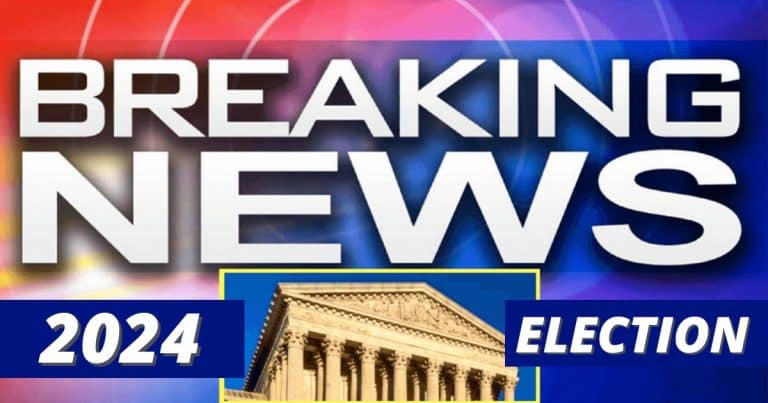
Democrats and Republicans have tried for decades to manipulate voting maps to establish areas that will benefit one side or the other. Each time there is a shift in which party has the most power in state legislatures, the majority party tries to rework the voting maps.
This always sets off a legal fight that at some point must be settled in court. These cases usually extend to the highest court in the nation, the U.S. Supreme Court.
The 2024 presidential election is already a contentious battle and any advantage gained by voting map changes could lead to critical decisions being handed down at the ballot box. This prompted Democrats in South Carolina to challenge Republican efforts to shift voting districts, but their efforts failed.
From Fox News:
The Supreme Court ruled on Thursday to reverse a lower court’s decision that said a South Carolina redistricting map was unconstitutional, rejecting the idea that it was racially discriminatory.In a 6-3 decision, written by Justice Samuel Alito, the high court said that “a party challenging a map’s constitutionality must disentangle race and politics if it wishes to prove that the legislature was motivated by race as opposed to partisanship. Second, in assessing a legislature’s work, we start with a presumption that the legislature acted in good faith.”
“In this case, which features a challenge to South Carolina’s redistricting efforts in the wake of the 2020 census, the three-judge District Court paid only lip service to these propositions,” the decision states. “That misguided approach infected the District Court’s findings of fact, which were clearly erroneous under the appropriate legal standard.”
Ouch, that was a high-court slap in the face to Democrats as the presidential race begins to heat up. The ACLU and the NAACP joined forces in an effort to challenge the redistricting. Their lawsuit claimed that the redrawn maps following the 2020 census were illegally gerrymandered and had urged the justices to rule before the upcoming congressional races.
The federal court panel that initially ruled the maps unconstitutional said in March it was “plainly impractical” to wait on the Supreme Court decision. The lower federal court must have known its decision was in jeopardy because the panel allowed the disputed maps to stand while waiting for the high court’s decision.
The origination of this final ruling began when Democrats successfully sued to stop the redistricting ahead of the November 2024 election. A lower court decided in favor of the Democrats, and the Supreme Court expressed concern over the timing of the decision.
South Carolina Republicans drew the maps which included shifting about 30,000 black voters into the states’ 6th Congressional District. Democrats hold a solid influence in the district which is the seat for Democrat Rep. James Clyburn, a longtime member of Congress who is black.
Key Takeaways:
- The U.S. Supreme Court upheld a congressional voting map draw by South Carolina Republicans.
- Democrats claimed the map “gerrymandering” was unconstitutional and won a lower court case.
- Justices who delivered the majority decision called the lower courts’ decision “lip service.”
Source: Fox News
